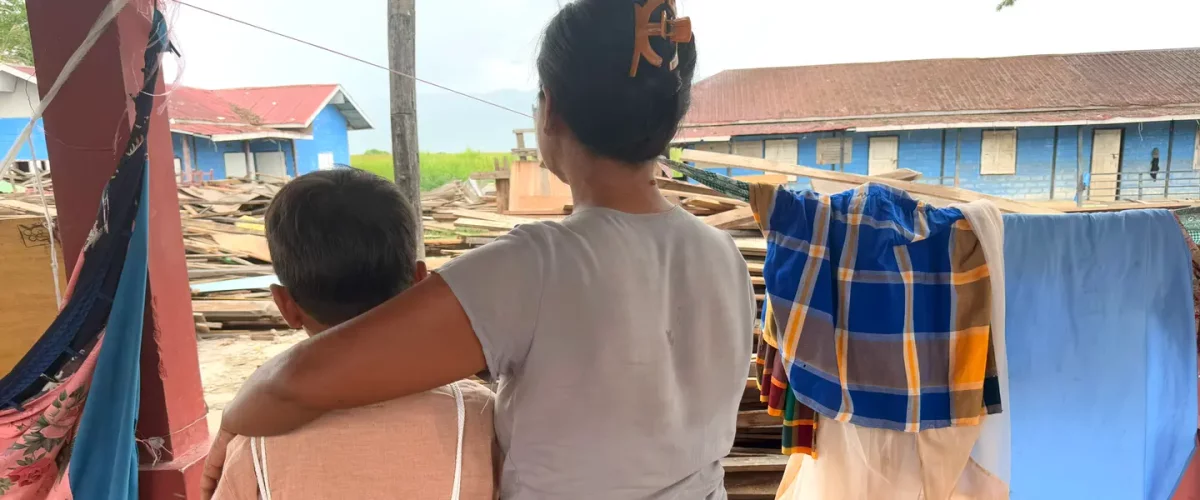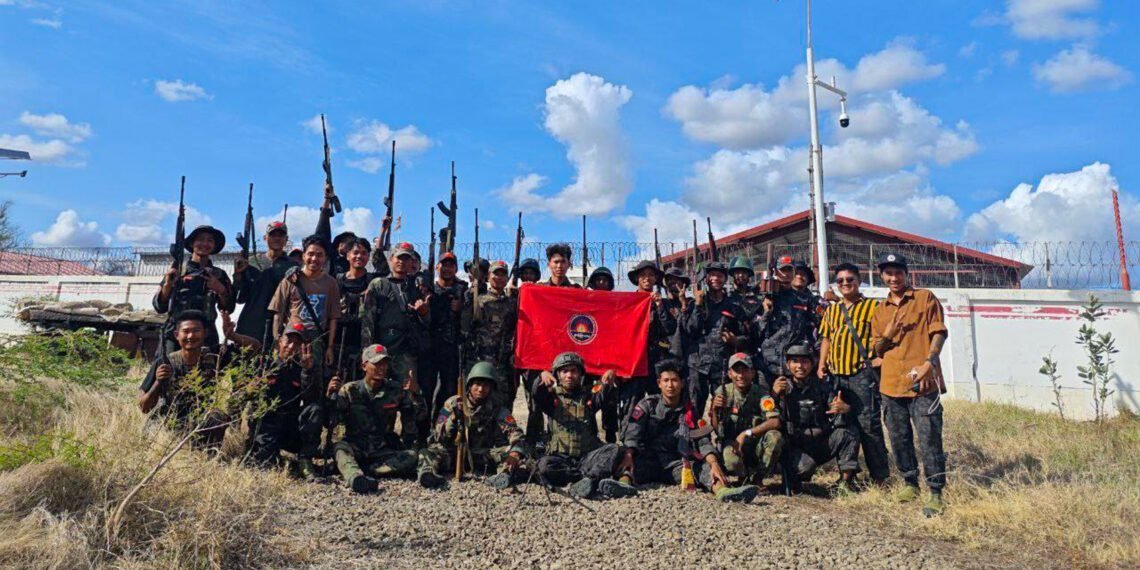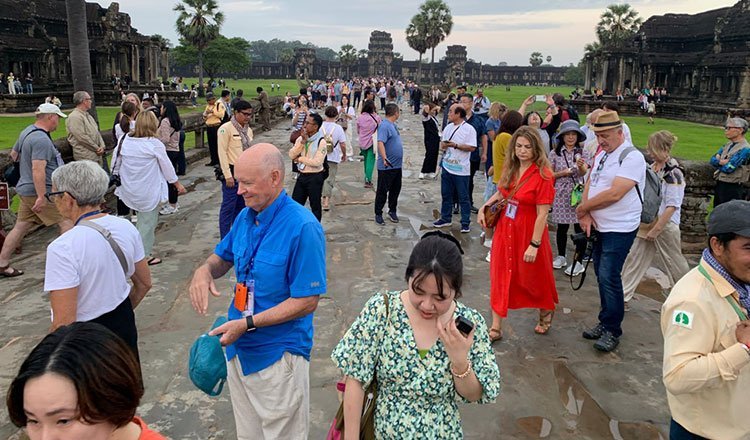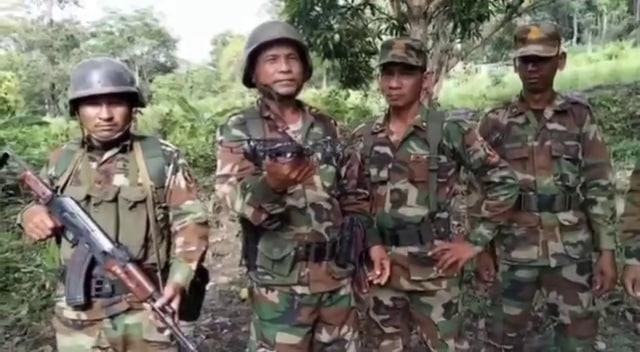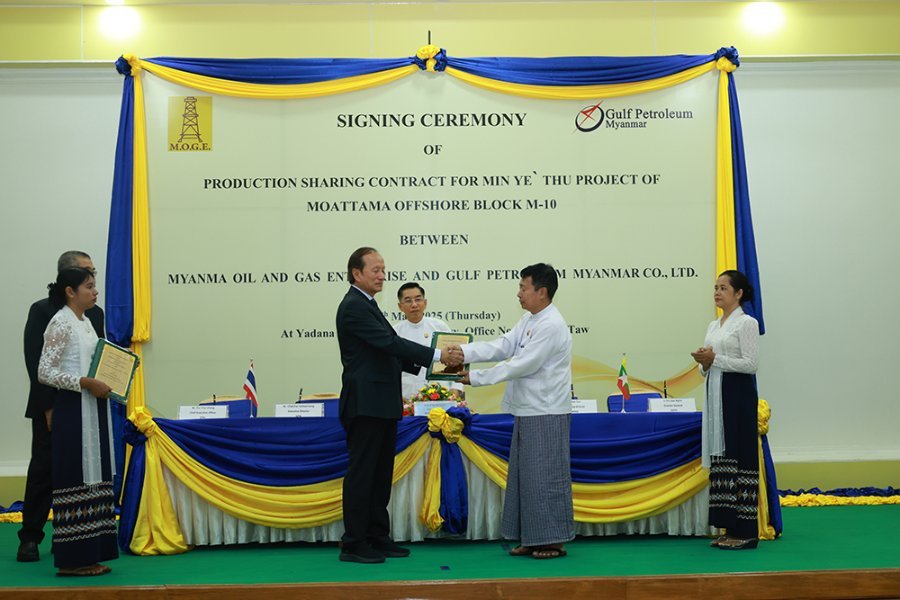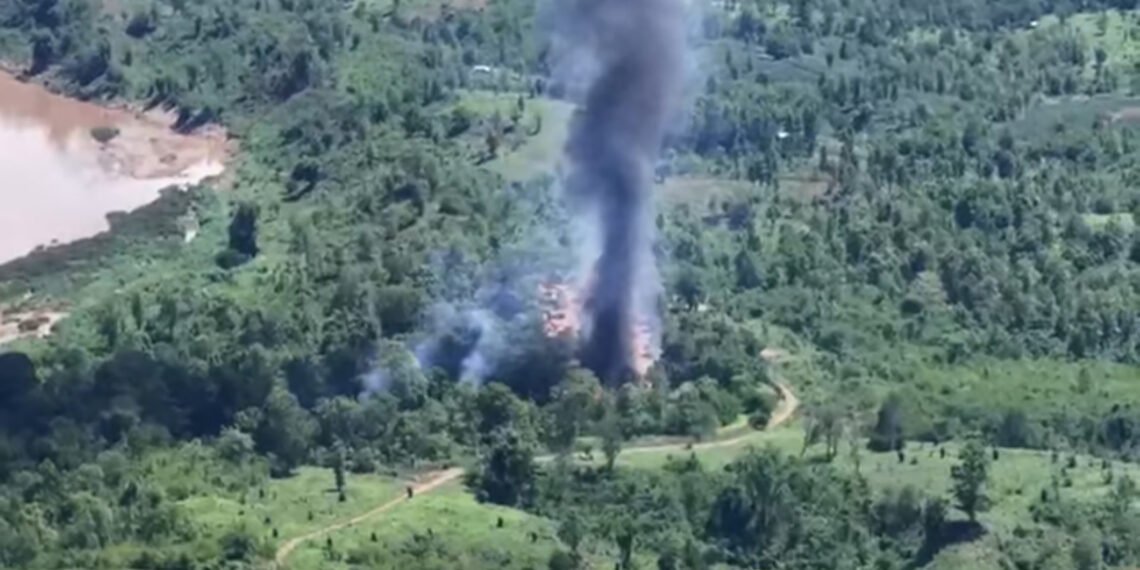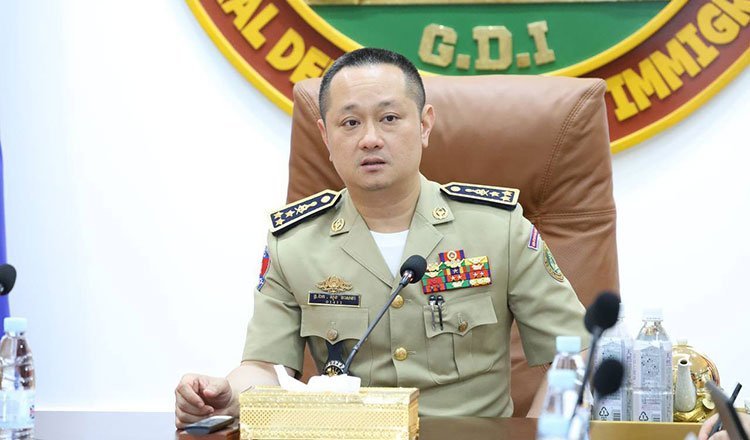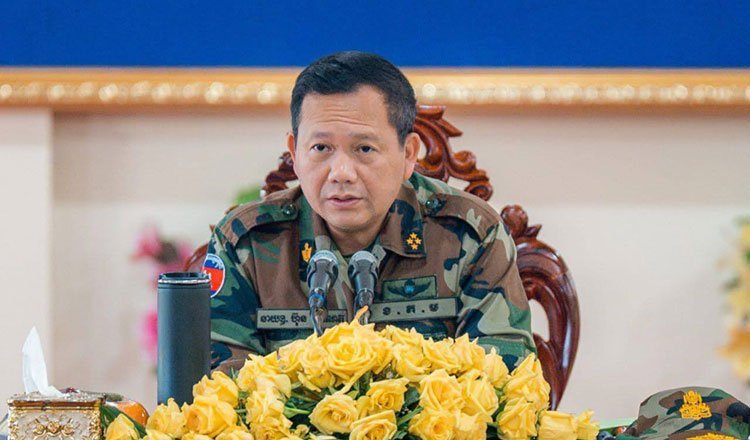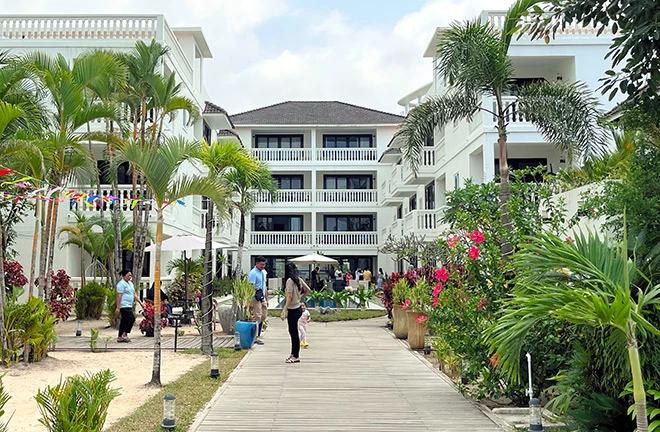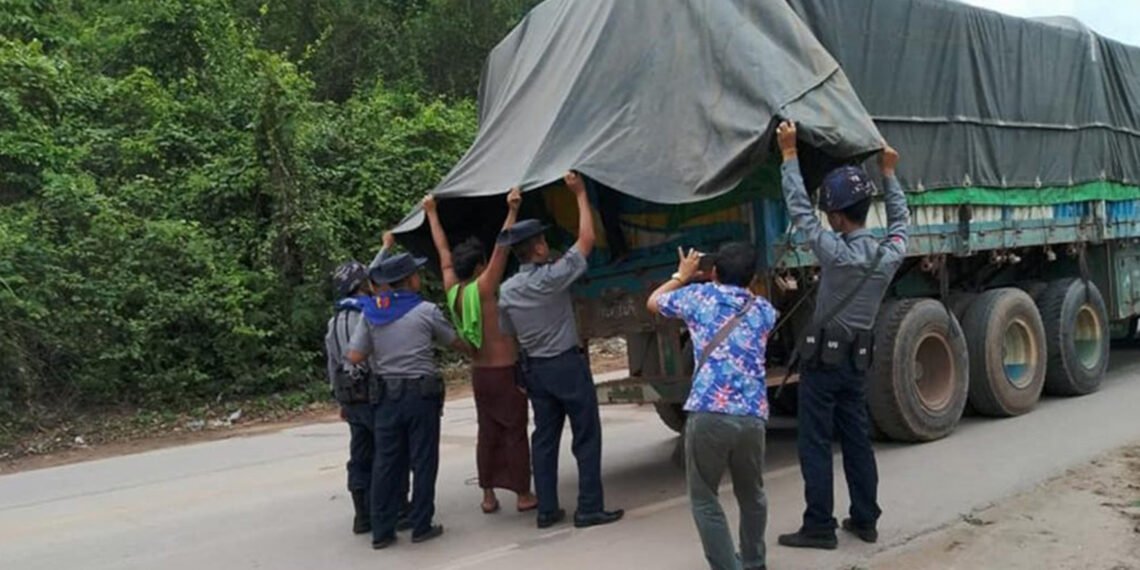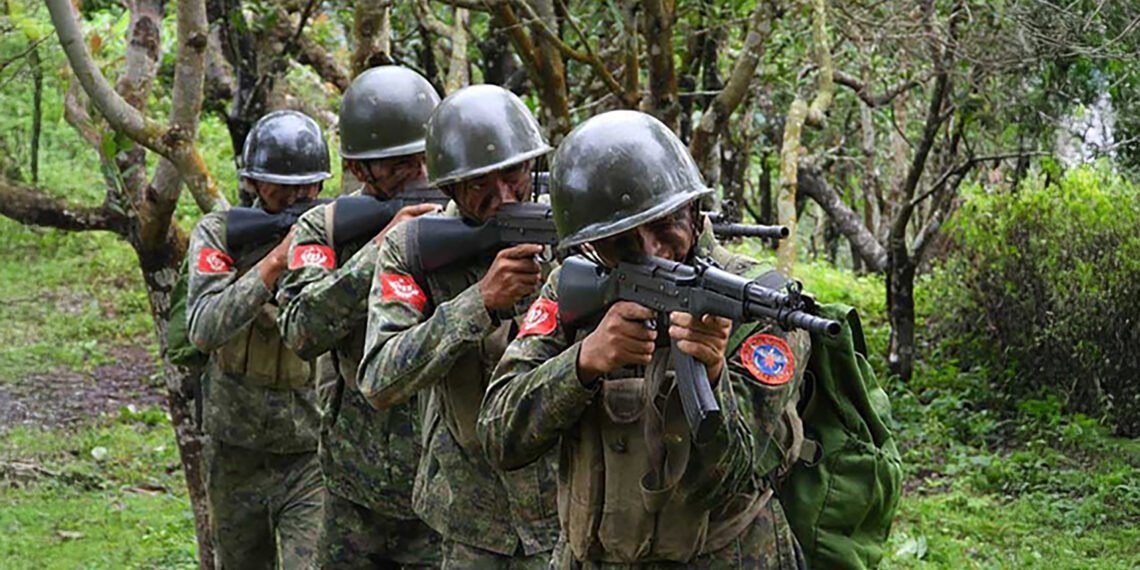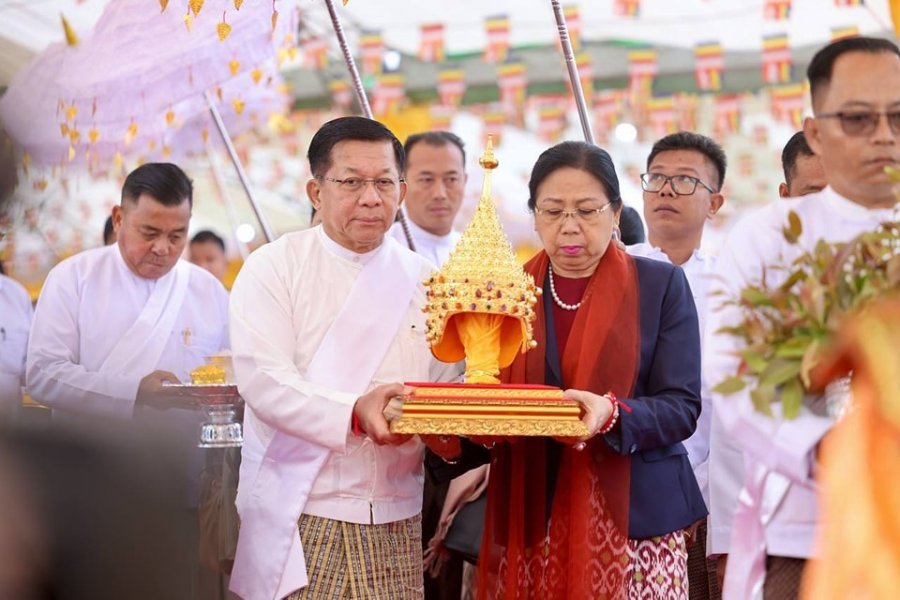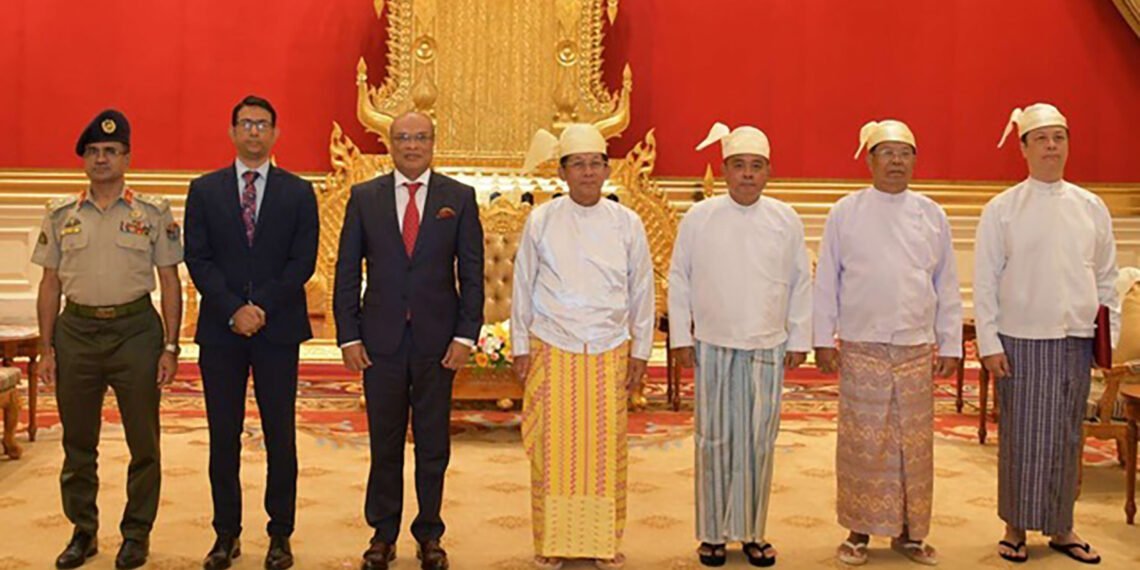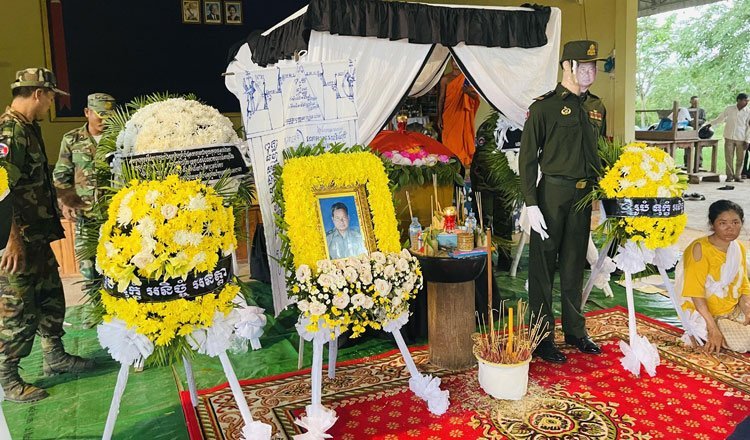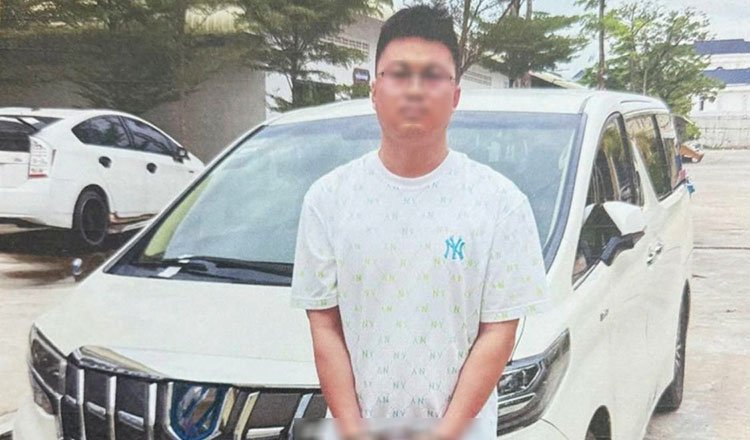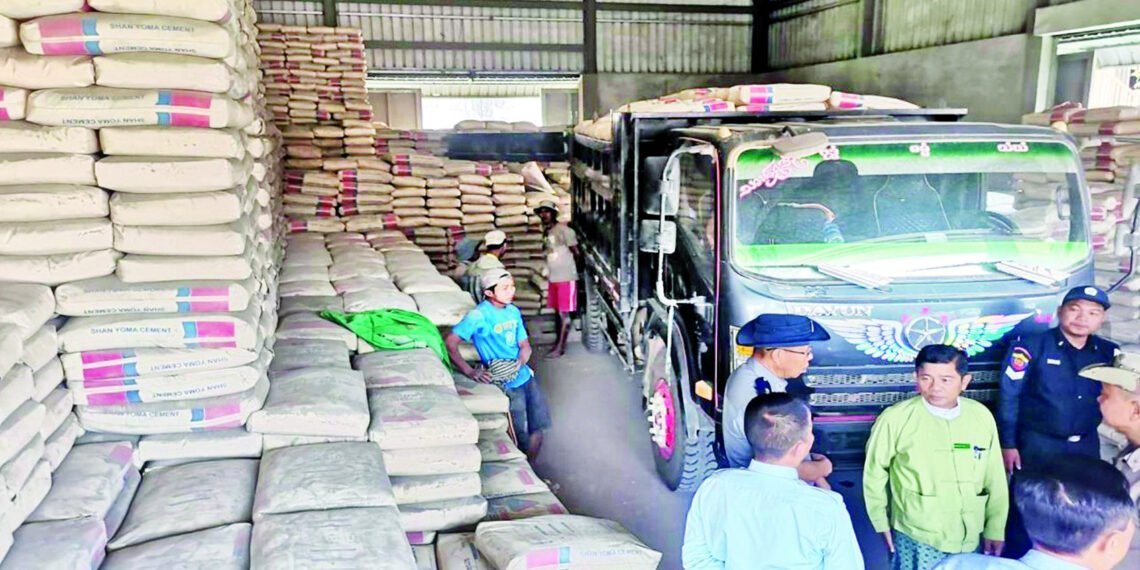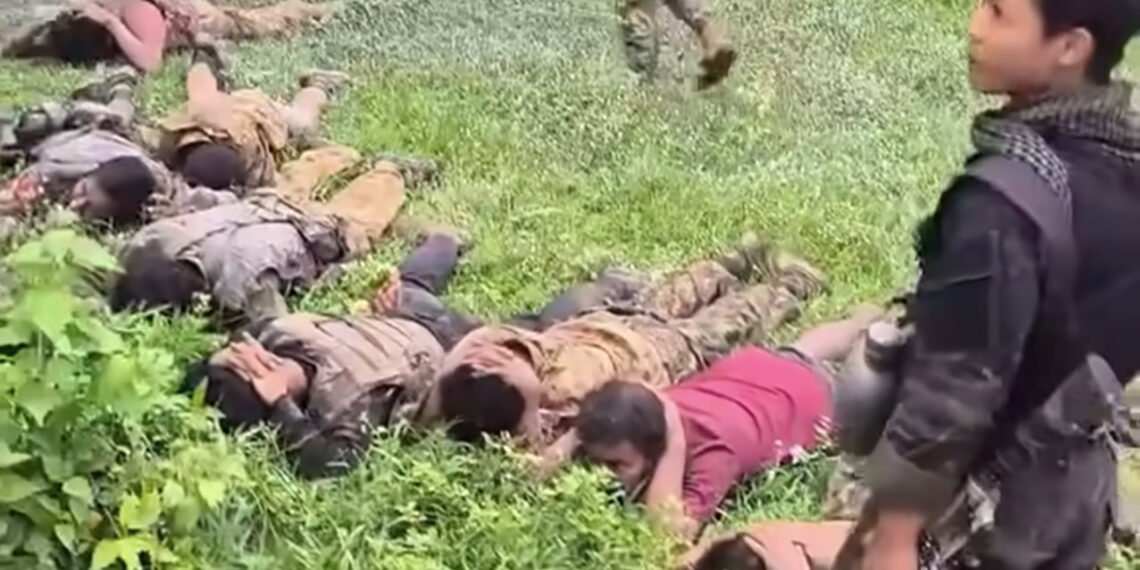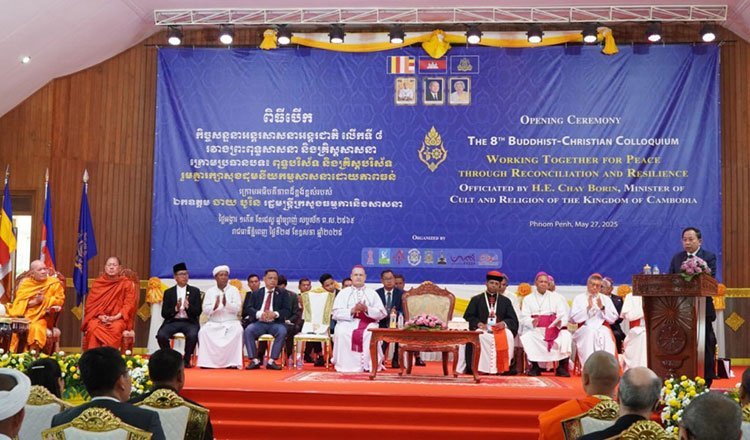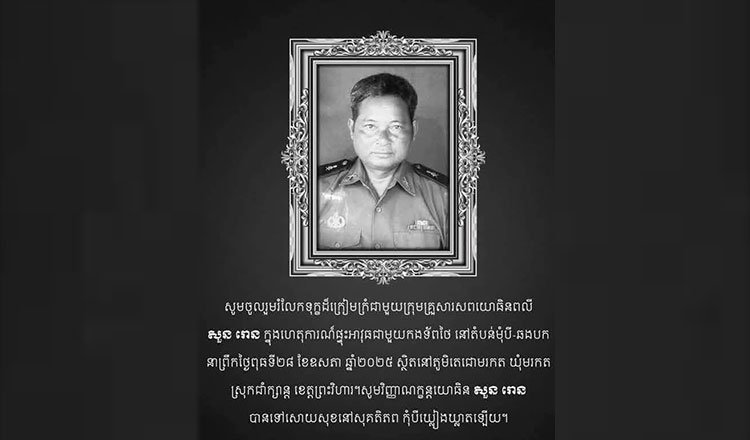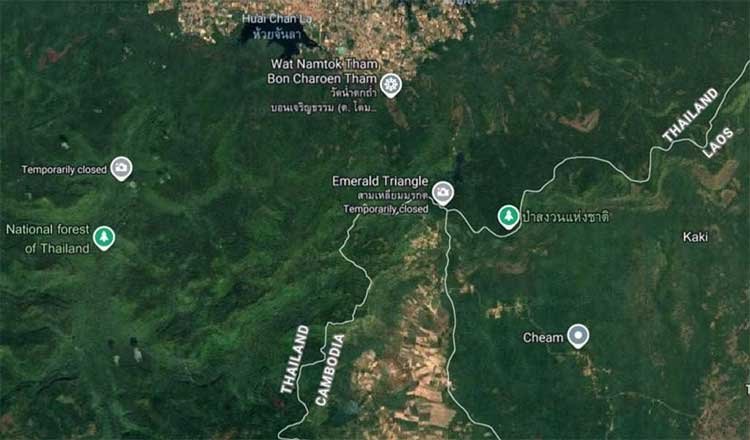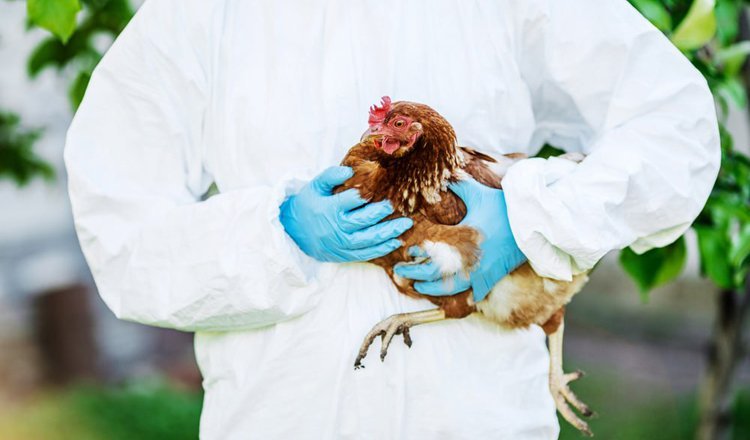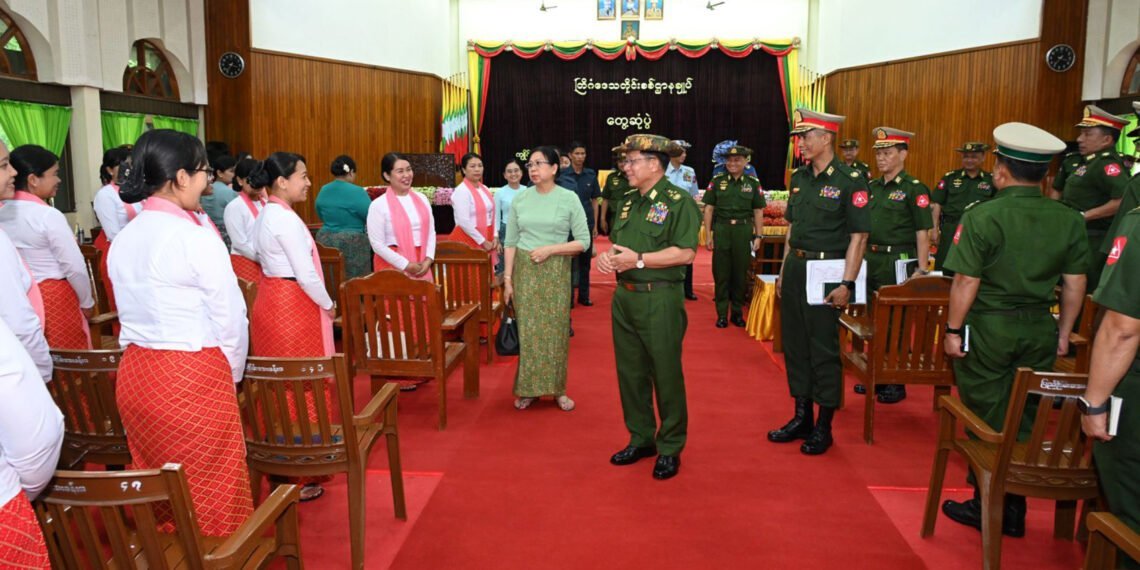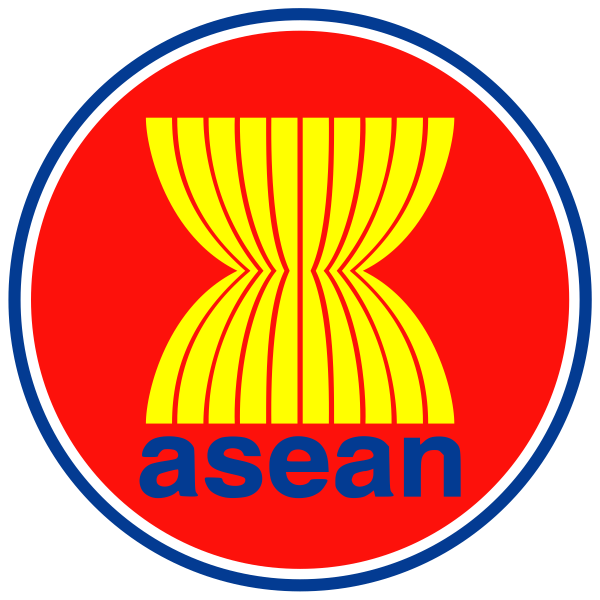-
Posts
15,781 -
Joined
-
Last visited
Content Type
Events
Forums
Downloads
Quizzes
Gallery
Blogs
Everything posted by geovalin
-
Save The Children YANGON, 2 June 2025 – As schools reopen across Myanmar, tens of thousands of children are beginning the academic year in makeshift classrooms, with more than 2,500 schools still damaged or destroyed following the devastating earthquake in March, Save the Children warned on Monday. The earthquake, one of the most powerful to hit the country in recent years, compounded an already dire humanitarian situation. Even before the disaster, an estimated 6.3 million children in Myanmar were in need of humanitarian support due to ongoing conflict and climate-related crises. Among the affected is 10-year-old Zin Phyo*, whose home and school were both destroyed. “If I had magic powers, I would bring the houses and school back to how they were before,” he told Save the Children. “Some of my friends are afraid to come back to school. If I get the chance, I will clean my classroom and wear my school uniform proudly.” Save the Children is providing education kits—including school bags, stationery, and t-shirts—to help students like Zin Phyo continue learning. The organization has also distributed essential aid such as food and clean water, and established child-friendly spaces offering emotional support. Abdurahman Sharif, Senior Humanitarian Director at Save the Children International, stressed the urgency of the situation: “Despite the huge scale of the crisis, the international community’s response has been woefully inadequate. Education is lifesaving—it protects children in a safe space and provides a sense of stability.” He called for a coordinated and sustained global effort to address the immense and overlapping challenges faced by children and families in earthquake-hit regions. “They must not be forgotten,” he said. In addition to education, affected communities urgently require shelter, food, clean water, and psychosocial support. Save the Children, which has operated in Myanmar since 1995, continues to deliver emergency relief and protection services in many of the hardest-hit areas. [*Name changed to protect identity] -2025-06-03
-
- 1
-

-
“Operation 9/A Nyar Myae” In a major blow to Myanmar’s military regime, anti-junta forces have captured four strategic outposts along the Thai-Myanmar border in Karen State’s Myawaddy Township within just three days, according to military and resistance sources. The coordinated assaults, which took place between May 28 and 30, were led by a coalition of the Karen National Liberation Army (KNLA) and People’s Defence Force (PDF) units under the National Unity Government’s Ministry of Defence. Another significant junta position in the area reportedly fell on May 23. "Each one collapsed within a day or two, which reflects how dire their situation is," said Padoh Saw Taw Nee, spokesperson for the Karen National Union (KNU), the KNLA’s political wing. Among the seized sites was a junta outpost in Baledo village, just south of the border town of Myawaddy, a key trading hub adjacent to Thailand. The escalation at the border coincides with rising military tension in central Myanmar. In Mandalay Region’s Taungtha Township, junta forces are amassing in an apparent bid to retake sections of a China-backed oil and gas pipeline corridor recently seized by resistance fighters. Around 150 troops arrived in Taungtha on May 29, with reinforcements of 60 more arriving days later. The pipeline is a vital energy link to China, and its seizure has reportedly drawn pressure on the regime to mount a counteroffensive. Launched on May 15, the anti-regime coalition's “Operation 9/A Nyar Myae” has seen coordinated attacks across Taungtha, Natogyi, Myingyan, and Nganzun townships. Fighters captured junta-held positions along the pipelines in Natogyi and have maintained control despite an anticipated regime response. The resistance has also conducted raids on junta offices and residences, including attacks on May 28 that targeted the local land records department. Fighting has since reached central Taungtha, where pro-junta channels reported fires and multiple casualties. In nearby Myingyan Township, resistance forces claim to have killed at least 50 junta-aligned personnel in operations between May 22 and 27. With both sides sustaining losses and junta airstrikes expected, local populations remain on edge. Myingyan District is considered a key resistance stronghold, strategically positioned between junta airbases at Tada-U and Meiktila, and bordering several volatile townships across Mandalay and Sagaing regions. As the fighting intensifies both along the Thai border and in central Myanmar, the military junta faces growing pressure on multiple fronts, while resistance forces continue to gain ground. -2025-06-03
- 1 reply
-
- 2
-

-

-
KT Tep Sony Cambodia’s famed Angkor Archaeological Park has pulled in more than $24.5 million in ticket sales from foreign visitors in the first five months of 2025 — a 10.64% rise on the same period last year. According to Angkor Enterprise, the state body overseeing ticket sales, over 527,000 international tourists visited the ancient temple complex between January and May — an 11.71% increase year-on-year. In May alone, 52,767 foreign tourists brought in $2 million in revenue. The uptick reflects a broader recovery in Cambodia’s tourism sector, which was severely hit during the pandemic years. Additional historical sites such as Koh Ker and Beng Mealea also saw healthy footfall, collecting over $248,000 in combined revenue. Tourism officials are now eyeing even greater gains during Cambodia’s so-called Green Season — the rainy months when visitor numbers typically drop. Speaking in Siem Reap during Khmer New Year, Prime Minister Hun Manet urged officials and the private sector to revitalise the low season by organising events and boosting street-level activity. “During the Green Season, we must strive to boost tourist numbers to at least 70 to 75 percent of those recorded in the high season,” he said. Kao Philip, President of the Siem Reap Tourism Club, praised the lush landscapes of Angkor as a major draw and welcomed the government’s increased promotion efforts. He acknowledged the road ahead remains long but said joint public-private initiatives are already making a difference. “We understand this is just the beginning,” he noted, “but we are committed to promoting Cambodian tourism, both at home and abroad.” The numbers show momentum is building. Cambodia welcomed 1.83 million international visitors in the first quarter of 2025, up from 1.58 million in the same period last year. Following a successful 2024, when 6.7 million international tourists visited the Kingdom, the Ministry of Tourism has set its sights on surpassing seven million this year. With ancient temples, renewed strategy, and growing interest, Cambodia appears ready to make its mark once more as a regional tourism powerhouse. -2025-06-03
-
Tensions between Cambodia and Thailand have flared once again, as Senate President Hun Sen issued a stern warning over continued military activity near disputed border areas — including the interception of a Thai drone in Cambodian airspace. Speaking on 2 June during a rare joint session of the National Assembly and Senate, Hun Sen condemned what he described as a series of provocations by Thai forces, including plans to dig trenches near the contested frontier and the unauthorised use of surveillance drones. “We have learned they are building a trench,” he said. “They may prepare within their own territory, but they must not come and build on my land—that is all.” Cambodian troops reportedly intercepted the drone in Preah Vihear Province, an area already sensitive due to previous clashes between the two neighbours. Military officials believe the device was conducting reconnaissance on Cambodian troop positions. Hun Sen, who also serves as President of the National Assembly, used the occasion to reaffirm Cambodia’s right to defend its territory. “Cambodia does not need anyone’s land, nor do we seek the return of lost territory,” he said. “But we will not allow anyone to seize what is ours.” He directly rejected a recent call from Thai military officials for Cambodian troops to withdraw 200 metres from a contested location in the Emerald Triangle. “Nowhere in the world is a country asked to withdraw from its own land,” he said, recalling similar pressure during a previous standoff near Preah Vihear Temple in 2011. Hun Sen also warned against the influence of dissident groups abroad, accusing them of stoking unrest and undermining national unity. “This is not about stirring anger—it’s about defending sovereignty,” he said. “We must now see who truly loves and defends the nation.” While the Cambodian leader urged citizens to stay calm, he encouraged them to remain watchful and continue supporting troops stationed along the frontier. He also thanked donors for providing supplies and morale boosts to soldiers on the ground. Despite rising tensions, Hun Sen stressed that border issues should not derail broader cooperation between Cambodia and Thailand — but insisted that sovereignty was not up for negotiation. -2025-06-03
-
MoI A Thai energy company has signed a new offshore gas deal with Myanmar’s junta, marking the first such agreement since the 2021 military coup—despite growing international condemnation of the regime’s human rights abuses. Gulf Petroleum Myanmar (GPM), a subsidiary of Thailand’s Northern Gulf Petroleum, inked a production-sharing contract with the junta-run Myanmar Oil and Natural Gas Enterprise (MOGE) in Naypyitaw last Thursday. The project, dubbed Min Ye Thu, is located in the Mottama Gulf and is set to begin production by 2028. The announcement comes as the junta faces severe budget shortfalls amid an escalating civil war. MOGE remains the regime’s largest source of foreign income and has been sanctioned by both the EU and the United States for funding military operations and atrocities against civilians. GPM operates in partnership with Myanmar’s SMART Group—long associated with the military elite—and already runs the Yetagun project, having taken over in 2022 following Petronas’ withdrawal. Energy Minister Ko Ko Lwin praised the deal, citing dwindling yields from existing gas fields and expiring contracts. “The new project will help fund further exploration and increase our foreign currency reserves,” he said. But rights watchdogs warn that such revenue will likely fund the junta’s military campaign, including a reported spike in indiscriminate airstrikes on resistance-held areas. International companies including Chevron, TotalEnergies, and Woodside exited Myanmar after the 2021 coup, citing concerns over the junta’s use of oil and gas profits to finance repression. Justice For Myanmar highlighted the opaque nature of Northern Gulf Petroleum’s operations, pointing to a network of shell companies based in tax havens such as Bermuda and the British Virgin Islands. With this latest move, critics argue, Myanmar’s military is once again leveraging its natural resources to sustain a brutal grip on power—while foreign firms risk complicity by propping up its economic lifelines. -2025-06-02
-
Karen area Myanmar’s military junta has announced a fresh extension of its post-earthquake ceasefire, pledging to support reconstruction efforts in disaster-hit regions—despite widespread scepticism over its commitment to peace. The truce, initially declared after a devastating earthquake in late March that killed nearly 3,800 people and left tens of thousands displaced, officially expired on 31 May. On Saturday, the junta confirmed the ceasefire would continue through to 30 June. In a statement, the regime said the extension aimed to “facilitate rehabilitation and reconstruction activities” in areas worst affected by the quake. Government buildings, homes, and transport infrastructure were among the priorities listed for rebuilding. The junta also claimed the truce would support preparations for what it described as “a free and fair multi-party democracy general election”—a promise many observers have dismissed as hollow, given the regime’s crackdown on political dissent since seizing power in 2021. Despite repeated announcements of ceasefires, fighting across Myanmar has persisted. Conflict monitors and rights groups have reported continued air strikes and military operations, particularly in ethnic minority regions, casting doubt on the junta’s sincerity. Critics accuse the military of using the guise of humanitarian relief to regroup and reinforce its positions, while simultaneously cracking down on resistance forces. Humanitarian agencies continue to face access challenges in quake-hit areas, citing both security concerns and restrictions imposed by the military. With the extended ceasefire now in place, attention turns once again to whether the regime will honour its commitments—or if, as many fear, the violence will continue behind the façade of reconstruction. -2025-06-02
-
Lieutenant General Sok Veasna MoI Over 140 Cambodian women have been rescued and repatriated from China this year after being deceived by human traffickers posing as marriage brokers, the Ministry of Interior has confirmed. Speaking at a press conference on Friday, Lieutenant General Sok Veasna, head of Cambodia’s General Department of Immigration, revealed that 146 women had been brought home in the first five months of 2025 alone. Many had been lured abroad under false promises, only to find themselves sold into forced marriages with Chinese men. “We are receiving these victims at Phnom Penh International Airport,” said Lt Gen Veasna. “They were trafficked under false pretences and have now been safely returned to Cambodia.” The General Department of Immigration has since tightened departure screenings at airports and border checkpoints, focusing particularly on women travelling to China under suspicious circumstances. According to authorities, several cases involved Cambodian women travelling with Chinese men they had known for just days. In one instance, a Cambodian woman and a foreign man were stopped and questioned after failing to give clear answers about their travel plans. Officials suspected trafficking and referred the case to the National Police Headquarters. The suspects were later handed over to the courts for further legal action. Authorities say traffickers are preying on vulnerable women with limited education or economic opportunities, exploiting their hopes for a better life abroad. The issue has become increasingly complex, with traffickers using social media and matchmaking schemes to disguise their operations. The Interior Ministry stressed that it remains committed to cracking down on trafficking networks and increasing awareness among at-risk communities. “We are determined to stop this trade in human lives,” Lt Gen Veasna stated. The Cambodian government continues to work closely with Chinese authorities to ensure the safe return of victims and to bring perpetrators to justice. In the meantime, officials are urging citizens to exercise caution when engaging in overseas marriage arrangements or informal travel plans. The latest figures mark a sharp reminder of the ongoing challenge of cross-border trafficking in Southeast Asia, where poverty and migration continue to fuel exploitation. -2025-06-02
-
Tensions flared along the Cambodia–Thailand border this weekend as Cambodian Prime Minister Hun Manet called for immediate talks and proposed international arbitration, following a deadly clash that claimed the life of a Cambodian soldier. In a sharp diplomatic move on Sunday evening, Hun Manet instructed the Cambodia–Thailand Joint Border Commission (JBC) to convene urgently, aiming to restart stalled demarcation work and prevent further escalation in contested zones. The call follows a fatal incident on 28 May, in which Cambodian officials accuse Thai troops of opening fire without provocation at a military outpost in Preah Vihear province. Cambodia’s Foreign Ministry has condemned the act as a “violation of sovereignty” and demanded a full investigation. “These provocations risk fuelling dangerous nationalist sentiment on both sides,” the Prime Minister warned in a statement, adding that while Cambodia remains committed to peace, it will not hesitate to defend its territory “by all means” if threatened. Beyond immediate talks, Hun Manet is now proposing that long-disputed areas—including the temples of Ta Moan Thom, Ta Moan Toch, and Ta Kro Bei—be referred to the International Court of Justice (ICJ). This marks a bold shift toward international legal arbitration to resolve tensions rooted in overlapping historical claims. The flashpoints, located in the border provinces of Oddar Meanchey and Preah Vihear, have witnessed repeated clashes over the years. The Cambodian leader argued that extremist groups on both sides are deliberately inflaming tensions, including by posting inflammatory messages online. “To avoid repeating the past, we must end this dispute conclusively,” Hun Manet said, citing maps recognised by the international community and evidence of longstanding Cambodian presence in the region. Despite firm rhetoric, Cambodia continues to emphasise diplomacy. “We are committed to peace,” the Foreign Ministry reiterated, calling for calm while pursuing accountability for the latest incident. With nationalist pressures rising and military posturing on both sides, the coming days will test whether diplomacy can prevail—or whether another border crisis is looming. -2025-06-02
-
Air Cambodia has resumed direct flights between Bangkok and the southern port city of Sihanoukville, enhancing access to Cambodia’s beach destinations and boosting regional tourism. The service, which restarted on 22 May, now operates twice weekly—on Thursdays and Sundays—using a 180-seat Airbus A320. It is currently the only direct flight between the Thai capital and Sihanoukville, a key gateway to the Gulf of Thailand’s island resorts, including the increasingly popular Koh Rong. Already operating daily flights between Bangkok and Phnom Penh, Air Cambodia is aiming to capitalise on the growing demand for seamless travel to Cambodia’s coast. The new link is expected to ease travel for both Thai holidaymakers and international tourists transiting through Bangkok, encouraging more cultural and economic exchange between the neighbouring countries. The flight schedule sees departures from Bangkok at 10:20am and returns from Sihanoukville at 12:20pm, with each leg arriving just over an hour later. In a further boost to its domestic capabilities, the airline has also taken delivery of a 70-seat ATR 72-600, a fuel-efficient aircraft designed for short-haul routes. With lower fuel consumption and the ability to land on shorter runways, it is well-suited to reaching rural parts of the country underserved by air travel. Tourism officials hope the revived Bangkok-Sihanoukville route and new aircraft will help decentralise travel beyond Phnom Penh and Siem Reap, drawing more visitors to Cambodia’s coastal provinces and remote communities. -2025-05-31
-
Cambodian authorities have raided a suspected phone scam base in Poipet, detaining more than 20 Japanese nationals believed to be involved in large-scale fraud targeting victims in Japan. The bust, which took place on 27 May in the north-western Cambodian city near the Thai border, followed a tip-off from police in Japan’s Aichi Prefecture. According to Japan’s National Police Agency (NPA), those arrested are suspected of impersonating Japanese police officers in phone calls designed to dupe victims into handing over cash under the guise of a criminal investigation. Computers, smartphones, and other equipment were seized during the operation. The building, situated among low-rise offices and dormitory-style lodgings, was reportedly fortified with multiple security gates, hinting at an organised operation. Victims were told their bank accounts had been linked to crime, and were pressured to prove their innocence by transferring funds—a tactic seen in nearly 1,900 confirmed fraud cases across Japan in the first three months of this year alone. Losses are estimated at over 17 billion yen (roughly £94 million). Aichi police revealed the tip-off came from a 21-year-old Japanese man who had unwittingly joined the scam. Recruited through a part-time job ad, he was flown to Thailand last December, then transported by car across the border to Poipet. There, under the control of Chinese supervisors, he and over 20 other Japanese were instructed to carry out the fraudulent calls. The man managed to return to Japan in January and reported his experience to police. This raid is part of a broader crackdown across Southeast Asia, where fraud bases exploiting Japanese nationals have proliferated. Since 2019, 178 Japanese citizens have been detained in similar operations in Cambodia, Vietnam, Thailand, and the Philippines. Many are believed to have been coerced into participating, lured by deceptive job offers and then trapped under tight security. Japanese investigators will now travel to Cambodia to support the inquiry and verify the identities of those detained, amid growing concern over cross-border scam networks exploiting vulnerable recruits. -2025-05-31
-
CJ Myanmar’s military regime is turning to seized contraband to plug a widening hole in its public finances, announcing plans to auction off thousands of confiscated goods as it grapples with a growing budget deficit. Deputy junta chief Soe Win this week urged officials to preserve the condition of seized items—mostly unlicensed vehicles, motorbikes, and imported machinery—so they can be resold swiftly to raise revenue. Since 2022, the junta claims to have seized goods worth over 575 billion kyats across 22,000 incidents. “We must take rapid legal steps so these goods can be sold to support the national budget,” said Soe Win, who also chairs the regime’s Illegal Trade Eradication Committee. Smuggling has surged as official border trade grinds to a halt in conflict-hit areas. Traders say the system is rife with extortion, where high taxes and opaque checkpoint fees make legal trade nearly impossible. “Even after paying taxes, junta checkpoints may seize our goods and demand bribes,” one Thai-Myanmar border trader told The Irrawaddy. “If you can’t pay, they’ll just take everything.” Sources say auctions will focus on unclaimed vehicles and cargo, with proceeds funnelled directly into junta coffers. In Hpa-an and Kawthaung, authorities reportedly conduct regular seizures to meet internal quotas, sometimes confiscating hundreds of trucks or goods worth up to 1 billion kyats per month. Meanwhile, junta leader Min Aung Hlaing is also tapping wealthy allies. At a second fundraising ceremony in Naypyitaw this week, cronies including tycoon Maung Weik and aviation mogul Aung Aung Zaw handed over nearly US$34 million in "donations" for earthquake relief—despite mounting evidence that junta airstrikes continue unabated in rebel-held areas. More than 3,700 people died in the March 28 quake, with survivors in Mandalay and Sagaing still sheltering in school buildings. Many are now being told to leave as schools reopen, even though debris from the disaster remains uncleared. As the junta scrambles for funds through auctions and elite donations, its grip on both the economy and the public continues to falter. -2025-05-31
- 1 reply
-
- 1
-

-

Top Myanmar Junta General Killed as AA Closes in on Key Port
geovalin posted a topic in Myanmar News
AA desk A top Myanmar junta general has been killed near the strategic port town of Kyaukphyu, as the Arakan Army (AA) intensifies its assault on the Chinese-backed investment hub in western Rakhine State. Brigadier General Kyaw Myo Aung, a senior strategist with the army’s Division 11, was reportedly shot dead on Monday by AA snipers along with a fellow officer. His body was flown to Yangon the following day and buried with military honours on Thursday, according to funeral notices shared online. The general’s death marks a major blow to the military regime, which is struggling to hold ground in a fast-shrinking area of control. The AA has reportedly seized multiple junta positions near Pyaing Si Kay village, just 5km south of Kyaukphyu, with battles raging around key police and military installations. Fighting has also flared close to China’s oil and gas terminals, part of Beijing’s multibillion-dollar Belt and Road Initiative. The port in Kyaukphyu links China’s Yunnan province to the Indian Ocean and is considered a strategic priority for Beijing. According to local reports, Chinese private security contractors are now directly assisting junta forces, including through drone operations. The Irrawaddy, which first reported the developments, could not independently verify these claims. This comes after Myanmar’s regime passed a law in February allowing foreign armed security firms to operate domestically. Chinese personnel have since been deployed to safeguard infrastructure around the port. Regime administrators are reportedly fleeing the area as the fighting intensifies, with the military resorting to airstrikes, naval support, and ground reinforcements to defend the port. The AA, which began its offensive in November 2023, claims to have taken control of 14 out of 17 townships in Rakhine State, as well as the neighbouring Paletwa Township in Chin State. It now has its sights set on the state capital, Sittwe. Civilians have borne the brunt of the military’s response, with airstrikes on towns under AA control resulting in numerous casualties, even as the conflict continues to spill into central Myanmar. -2025-05-31-
- 2
-

-
Myanmar junta leader Min Aung Hlaing is once again turning to superstition in a bid to secure his long-coveted presidency, as the country braces for military-staged elections in December. Over the weekend, the general visited Kengtung in eastern Shan State—an area with personal significance from his days as commander—where he performed a high-profile yadaya ritual, a form of Burmese occult practice aimed at warding off misfortune and summoning good luck. The centerpiece of this latest ritual was the enshrinement of a bejeweled crown, symbolically linked to the regalia of Burmese monarchs, at Lawkatharaphu Pagoda. Min Aung Hlaing and his wife presented the crown to Vasipake Sayadaw, a reclusive monk and spiritual adviser known for his influence over the general and his silent vows. Their association dates back to the early 2000s and has involved numerous rituals, including alleged instructions to security forces during the 2021 coup crackdown. Widely interpreted by the public as an attempt to enhance his political fortune through supernatural means, the crown offering is seen as an effort to conjure legitimacy and victory ahead of the regime’s planned election. Critics view it as another example of how Myanmar’s military rulers intertwine religion, ritual, and repression. Min Aung Hlaing’s obsession with astrology, numerology, and magical emblems is well-documented. In the past, he has consecrated pagodas in both Myanmar and abroad, unveiled a giant ruby and white elephant—symbols of divine favor—and commissioned the world’s tallest sitting Buddha in Naypyitaw, each move carefully timed with political events or crises. After natural disasters like the March 2024 earthquake and 2023’s Cyclone Mocha, his response was often more religious than humanitarian. Observers noted that his rituals consistently coincided with major threats to his power, including armed resistance movements and international condemnation. His aspirations to become president were thwarted in 2020, when the National League for Democracy (NLD) scored a landslide victory. The subsequent coup and dissolution of opposition parties, including the NLD and the Shan Nationalities League for Democracy, have cleared a path for the military-backed Union Solidarity and Development Party (USDP) to dominate the December poll. Still, Min Aung Hlaing appears unwilling to leave his fate entirely to political engineering. His repeated invocations of “Aung Pi!” (“We did it!”) during ceremonies have come to symbolize his reliance on yadaya to defeat not just political rivals, but growing public resentment and armed resistance. Whether this fusion of mysticism and militarism will deliver him the presidency remains to be seen, but to many in Myanmar, his rituals are a surreal yet chilling echo of the military’s long history of ruling not just by force, but by fate. -2025-05-30
- 1 reply
-
- 1
-

-
MOI Bangladesh has recalled its ambassador from Myanmar, deepening diplomatic tensions following Dhaka’s confirmation that it has opened communication channels with a rebel army fighting Myanmar’s military junta. Ambassador Monowar Hossain, stationed in Naypyidaw since mid-2023, was instructed to return to Dhaka immediately, according to a Bangladeshi foreign ministry official who called it an "administrative decision" without elaborating. The move follows last week’s admission by Bangladesh’s National Security Adviser, Khalilur Rahman, that the government has engaged in informal talks with the Arakan Army—an ethnic armed group active in Myanmar’s western Rakhine state—in an effort to stabilise the border region. The Arakan Army has been engaged in fierce conflict with Myanmar’s ruling junta, which seized power in a 2021 coup. Myanmar has not officially responded to the diplomatic withdrawal, and junta spokespeople have so far remained silent. Relations between the two countries have long been strained by the Rohingya refugee crisis. More than 1.2 million Rohingya Muslims have fled Myanmar’s military crackdown, with many now living in overcrowded camps in southern Bangladesh. Dhaka reports that over 130,000 more people have crossed the border in the past year alone. The humanitarian situation in Rakhine is worsening, with the United Nations warning of widespread hunger and displacement, raising fears of another mass exodus. Rahman said Bangladesh continues to engage both the junta and international agencies to find a long-term resolution, including exploring a U.N.-led humanitarian corridor in the conflict-hit region. However, Bangladesh’s military has voiced concern. “The army will not be involved in any activity that compromises the country’s security,” said Colonel Shafiqul Islam, in response to the corridor proposal. While Dhaka maintains that its outreach to the rebels is aimed solely at ensuring border stability, the rare diplomatic move of recalling an ambassador suggests a recalibration of strategy as tensions mount both within Myanmar and along its volatile frontier. -2025-05-30
- 1 reply
-
- 1
-

-
A Cambodian soldier fatally shot in a border clash with Thai forces has been laid to rest, as military and political leaders from both nations work to de-escalate the sudden spike in tensions. Master Sergeant Suon Raun, 47, died in a brief but deadly exchange of gunfire in the early hours of 28 May in the disputed Mom Bei area near Preah Vihear. The skirmish, which lasted around ten minutes, has sparked a flurry of diplomatic and military activity as both sides accuse the other of firing first. The Cambodian government has insisted the incident took place within its territory, while Thai officials maintain it occurred on their side of the border in Ubon Ratchathani. The zone has long been a flashpoint and was previously agreed upon as a no-occupation area. Suon Raun’s funeral was held with full military honours, attended by grieving family members and senior officials. Responding to an appeal by Senate President Hun Sen, several philanthropists donated to support the soldier’s family. Prime Minister Hun Manet, speaking from Japan where he was on an official visit, reaffirmed his control over the military response and called for calm. “All strategic decisions remain under my authority,” he said, adding that while Cambodia would defend its sovereignty, peaceful dialogue remains the priority. Thai Prime Minister Paetongtarn Shinawatra also urged restraint. “We don’t want this to escalate. We’re committed to resolving this peacefully,” she said, describing Cambodia’s deployment of backup forces as a normal defensive step. Senior commanders from both armies met yesterday at the O’Smach border crossing in a bid to ease tensions and improve communication between frontline troops. The mood remains cautious but cooperative. While both governments have made clear their desire to avoid war, the incident has reignited sensitive memories of previous clashes and territorial disputes. For now, the focus is on diplomacy—but with forces still positioned near the border, the risk of renewed violence has not yet passed. -2025-05-30
-
Police A Chinese hotel owner in Phnom Penh has been formally charged with fatally beating an employee during a workplace row, in a case that has shocked Cambodia’s hospitality sector. The incident took place on 21 May at a Chinese-owned hotel in Tonle Bassac, Chamkar Mon district. According to police, 32-year-old Yuan Bao Dong, the hotel’s owner, attacked his 36-year-old staff member—also Chinese—following a heated dispute over alleged negligence. Investigators say the confrontation escalated when the victim attempted to strike back after being insulted by Yuan. The employer allegedly retaliated with a steel rod, striking the man repeatedly in the head. The victim later died from his injuries at Calmette Hospital. The Phnom Penh Municipal Court issued a warrant on 29 May, charging Yuan with “Intentional Acts of Violence with Aggravating Circumstances” under Article 224 of Cambodia’s Criminal Code. If found guilty, he faces a prison sentence of seven to ten years. Yuan was arrested on 26 May by local police and is currently being held in pre-trial detention. Deputy Police Chief Major Chhim Saveth confirmed that Yuan had confessed to the attack, telling officers the altercation stemmed from frustrations over the victim’s poor performance at work. The case has raised concerns about worker protections and employer conduct in Cambodia’s fast-growing hotel industry, which employs many foreign nationals. Local authorities have yet to comment on whether the hotel remains operational or whether further action will be taken. The investigation is ongoing. -2025-05-30
-
April 2025 Reconstruction efforts following the devastating March 28 earthquake in Myanmar are being severely hampered by skyrocketing cement prices and supply shortages, particularly in the worst-hit regions of Mandalay, Naypyitaw, and Sagaing. Before the quake, a sack of cement cost around 17,000 kyats (US$4). Prices have since surged to as high as 40,000 kyats in some areas, builders report. Although the regime pledged to subsidize cement for recovery, this relief appears limited to select locations in Naypyitaw. “There are long lines and a 10-sack-per-person limit where government-subsidized cement is available. In most places, it’s overpriced or unavailable,” one resident told The Irrawaddy. In Sagaing, where many shops were damaged or shuttered by the quake, long queues have formed at the few stores still operating. “We’re forced to pay whatever price we can find to keep working,” said a local contractor. The scarcity is compounded by a drop in cement production. Only six of Myanmar’s nine cement plants are currently operational, producing just 340,000 sacks daily, far below demand. Even in Mandalay, where smaller outlets continue to sell limited quantities, prices have spiked above 30,000 kyats. Bricks have also doubled in cost. The Indian government has donated 4,500 sacks of cement, but locals fear it will be allocated mainly to state-managed projects in Naypyitaw, not to broader public recovery. The building sector is also facing labor shortages. “We’re not constructing—only demolishing damaged structures,” said one construction source. “Even large suppliers are rationing.” Authorities say they’ve launched inspections of over 300 building supply outlets across major cities and filed price-gouging cases against more than 60 shops. Still, residents and contractors see little relief in sight. The crisis highlights broader economic dysfunction in post-coup Myanmar, where even disaster response is strained by inflation, broken supply chains, and uneven governance. -2025-05-29
-
- 1
-

-
Sun Poe Karen and Chin resistance forces have struck coordinated blows against Myanmar’s military, capturing dozens of troops, reclaiming key territory, and intensifying pressure near the Thai and Indian borders. In Karen State, the Karen National Liberation Army (KNLA) and allies ambushed around 72 junta reinforcements on Wednesday near Sone Si Myaing, close to the Thai border. The troops had reportedly passed through Thai territory en route to Thay Baw Boe, a strategic camp under rebel assault. Resistance forces claimed to have detained 30 junta soldiers alive, with others killed or fleeing. “We have seized weapons and are still clearing the area,” a KNLA source told The Irrawaddy. The junta responded with airstrikes, targeting villages near the Democratic Karen Benevolent Army (DKBA) headquarters. Five communities were displaced into Thailand, deepening the humanitarian toll. The battle is part of a broader campaign by Karen forces, who have retaken multiple former strongholds this month, including Maw Phoe Kay and Htee Hkee. These offensives mark a sharp escalation in the civil war, particularly in territory once thought secure by the military regime. Meanwhile, in Chin State, anti-junta forces are resisting a major push by some 800 junta troops attempting to seize Tedim town from the south. Fighting has intensified since May 18, with Chin resistance capturing nine soldiers and forcing at least 20 desertions. Salai Htet Ni, spokesman for the Chin National Army, said the goal is to prevent the military from reclaiming lost territory ahead of elections tentatively promised for late 2024. “Despite internal differences, we are uniting to block their advance,” he said. Battles along the Kale-Tedim road have displaced over 1,000 civilians, as the junta targets villages in an effort to establish a base near Taingen—a strategic junction leading to Indian border towns. Military analysts believe the junta is now facing a more coordinated and determined resistance than at any point since the 2021 coup, as ethnic armed groups across Myanmar align their campaigns and intensify pressure on the regime. -2025-05-29
-
CSC A senior Vatican figure has called on Buddhists and Christians to deepen cooperation for peace, highlighting shared values that can help address today’s global challenges. Cardinal George Jacob Koovakad, Prefect of the Dicastery for Interreligious Dialogue, made the remarks at the 8th Buddhist-Christian Colloquium held in Phnom Penh. The event, themed “Working Together for Peace through Reconciliation and Resilience”, brought together religious leaders committed to confronting issues such as conflict, poverty, and environmental degradation. “Reconciliation and resilience are deeply rooted in both Buddhism and Christianity,” said Cardinal Koovakad. “They form the foundation for building peace and healing all crises. We must say no to war and yes to peace.” Bishop Olivier Schmitthaeusler, Apostolic Vicar of Phnom Penh, underscored the Catholic Church’s contribution to peacebuilding in Cambodia, despite its modest size—comprising roughly 20,000 members, 80 priests, and 200 religious personnel. He expressed gratitude to the Cambodian government for its consistent support, which has enabled religious communities to thrive and play active roles in promoting peace. Chay Borin, Minister of Cults and Religion, who presided over the event, echoed the sentiment. He praised Cambodia’s stability and respect for religious freedom, saying, “Peace is essential, and maintaining and promoting it is a shared responsibility for all.” The colloquium served as a reminder that, despite differing doctrines, the world’s faiths can stand together in the face of division and uncertainty. With Cambodia as host, the message was one of unity, mutual respect, and a collective commitment to building a more peaceful world. -2025-05-29
-
Tensions flared on the Cambodia–Thailand border yesterday morning as troops from both sides exchanged gunfire in a long-disputed area, leaving one Cambodian soldier dead and sparking urgent diplomatic efforts to prevent further escalation. The incident occurred at around 5:30am near Chong Bok, a contested zone in Thailand’s Ubon Ratchathani province. Thai military officials claim Cambodian forces entered a no-occupation zone in violation of a bilateral agreement. A Thai patrol allegedly approached to engage in routine dialogue, but was met with gunfire—prompting a 10-minute exchange. Thailand’s Major General Winthai Suvaree said the Thai soldiers returned fire only after being shot at, while Cambodia’s Major General Mao Phalla insisted details of the clash remain unclear, noting such accusations were “not new.” The firefight resulted in the death of 47-year-old Cambodian Master Sergeant Soun Roan. Cambodia’s Ministry of Defence asserts the gunfire erupted on their side of the border—in Preah Vihear province—noting that Cambodia does not seek conflict, but is prepared to defend its territory. Both militaries rapidly established communication and agreed to a ceasefire. Senior commanders are now engaged in negotiations to de-escalate tensions and prevent further incidents. The region has seen sporadic border flare-ups over the years, most notably between 2008 and 2011 during the Preah Vihear temple dispute. Those clashes caused casualties, displaced civilians, and strained diplomatic ties until an International Court of Justice ruling in 2013 affirmed Cambodia’s sovereignty over the temple area. Cambodian leaders, including Prime Minister Hun Manet and Senate President Hun Sen, have urged restraint while defending the nation’s right to territorial integrity. Hun Sen warned against fuelling nationalist sentiment, drawing parallels to the politically charged violence of the past. As both sides pursue talks, experts caution against allowing political opportunists to exploit the incident. Pou Sothirak, a senior advisor at the Cambodia Centre for Regional Studies, emphasised the need for level-headed diplomacy and public transparency to prevent a spiral into renewed conflict. For now, the guns have fallen silent—but the border remains tense, and the shadow of past wars looms large. -2025-05-29
-
A Cambodian soldier has been killed in a brief but deadly exchange of fire with Thai troops near the disputed border area of Mom Tei, officials confirmed on Tuesday. The firefight erupted in the early hours of 28 May and lasted around ten minutes before commanders on both sides enforced a ceasefire by phone. The victim, 48-year-old Suon Roun, was part of a Cambodian patrol near the Preah Vihear province border. Cambodian officials say Thai forces launched an unprovoked attack on a long-held position in Techo Morakot village, Choam Ksan district. In contrast, Thai authorities claim Cambodian troops entered their territory and opened fire first, prompting what they described as a defensive response. The conflicting narratives have added fuel to a sensitive territorial dispute between the two Southeast Asian neighbours. While minor tensions are not uncommon along the contested border, fatalities are rare and often trigger diplomatic strain. “This clash is not something Cambodia desires,” the Ministry of National Defense said in a statement, reaffirming its commitment to peace but vowing to defend the nation’s territorial integrity “at all costs”. Efforts are now under way to defuse the situation. Talks between senior defence officials from both countries are expected in the coming days, with both sides publicly calling for restraint. Cambodia has also issued a strong warning to the public not to spread unverified information online, fearing that misinformation could inflame tensions and disrupt ongoing negotiations. The border surrounding Preah Vihear has long been a point of contention, notably flaring into violent clashes in the late 2000s. Although cooperation has improved in recent years, Monday’s firefight underscores how fragile that peace remains. The Thai government has yet to release an official statement. Regional observers are watching closely to see whether this incident is swiftly resolved — or becomes a flashpoint in an already delicate relationship. --2025-05-28
-
RFA Cambodian police have announced plans to request the extradition of a woman who publicly criticised the government’s trade talks with the United States, escalating concerns over free speech and political persecution. The woman, identified as Chhin Chou from Battambang province, posted commentary online under the alias “Overseas Woman”, suggesting that recent trade negotiations with the U.S. had failed due to Cambodia’s poor human rights record. She warned that the second round of talks, due in June, would likely meet the same fate unless reforms were made. Her remarks targeted Cambodia’s commerce minister and highlighted concerns that the U.S. may maintain a punitive 49% tariff on Cambodia’s key garment and footwear exports. The United States is Cambodia’s top export market, and reaching a deal is critical for Prime Minister Hun Manet’s government. In response, Cambodian national police accused Chhin Chou of incitement and attempting to overthrow the government. They have confirmed they are working to have her extradited from Thailand, where she is believed to be residing. Thailand has previously cooperated quietly with Cambodian authorities in returning political dissidents — often drawing criticism from international human rights groups. However, in this case, Cambodian police have uncharacteristically named the suspect publicly. Thailand’s immigration bureau said on Monday it had not yet received a formal arrest request. Ny Sokha, head of the Cambodian rights group Adhoc, defended Chhin Chou’s right to speak out. “This is not a criminal offence,” he said. “Freedom of expression is clearly protected by Cambodia’s constitution and international law.” The case adds to a growing list of government crackdowns. Human Rights Watch reported that at least 94 critics were arrested in Cambodia last year for “incitement” or “treason”. Among them is journalist Ouk Mao, who reported on illegal logging and was arrested without a warrant earlier this month. He was released on bail Sunday but still faces multiple charges. As the Cambodian government tightens its grip on dissent, the fate of Chhin Chou — and others who speak out — may signal just how far authorities are willing to go to silence critics beyond their borders. -2025-05-28
-
Cambodia’s Ministry of Health has confirmed the death of an 11-year-old boy from the H5N1 strain of bird flu, marking a grim reminder of the virus's continued threat to human life. The child, from Srey Sampoung Village in Kampong Speu Province, tested positive for the virus on 27 May at the Pasteur Institute of Cambodia. Despite emergency treatment, he died the same day after being admitted in a critical state, suffering from severe respiratory symptoms. Investigations revealed that poultry near his home had been dying in the week leading up to his illness. Officials believe this was likely the source of the infection. In response, Cambodia’s health and agriculture authorities have launched an urgent containment effort. Emergency teams are tracing contacts, distributing antiviral medication, and stepping up public awareness campaigns in the affected area to prevent further human cases. The Ministry has urged the public to remain vigilant, particularly those in contact with poultry. It warned that anyone experiencing fever, cough, or difficulty breathing after exposure to sick or dead birds should seek medical care immediately — delays, they stress, can be fatal. Bird flu, also known as avian influenza, primarily spreads from infected birds to humans through direct contact. While it is not easily transmitted between people, health experts warn that mutations could pose a broader pandemic risk. Authorities have issued renewed guidance on prevention: avoid touching or consuming sick or dead birds, wear protective gear when handling poultry, practise strict hygiene, and ensure all meat and eggs are fully cooked. Though Cambodia has seen sporadic human infections in the past, this latest case has reignited concern over the virus’s potential to resurge, particularly in rural communities where contact with poultry is common. The Ministry of Health says it will continue to update the public through official channels as investigations and response measures continue. -2025-05-28
-
MOI Myanmar’s military ruler, Min Aung Hlaing, has kicked off what appears to be a thinly veiled presidential campaign, urging troops to support candidates aligned with the junta in December’s widely discredited election. The coup leader made the appeal during a visit to military families in Kengtung, Shan State, positioning himself and his proxy party — the Union Solidarity and Development Party (USDP) — at the centre of the upcoming vote. Though he has pledged to hand over power to the election’s winner, critics say the process is a farce, designed to cement military dominance. The USDP, packed with former army officers and chaired by ex-Brigadier General Khin Yi, is expected to sweep the poll following the dissolution of major pro-democracy parties, including Aung San Suu Kyi’s National League for Democracy (NLD). The NLD won the last democratic election in 2020 by a landslide before being ousted by the military the following year. Observers believe Min Aung Hlaing is setting the stage to secure the presidency through the parliament, which is heavily influenced by the military. Under the 2008 junta-drafted constitution, military appointees control a quarter of all seats and will vote alongside elected MPs. With the NLD and other rivals barred, the USDP is expected to dominate, effectively ensuring his victory. The planned election has drawn sharp condemnation both at home and abroad. The civilian-led National Unity Government and many in Myanmar view it as a sham. Western governments have echoed those concerns, while ASEAN has shown division: Malaysia has warned that voting amid violence and repression risks further delegitimising the process. Only around 25% of the country is believed to be under junta control, and even the regime admits its census failed to count over half of the population. Nevertheless, 54 parties — mostly military-aligned — have been approved to run, with campaign activities already under way. As the military seeks to present a veneer of electoral legitimacy, critics warn the upcoming vote could entrench authoritarian rule rather than restore democracy. For Min Aung Hlaing, however, the ballot may be the final step in converting his coup into a presidency. -2025-05-28
-
Southeast Asian leaders have called for an extended and expanded ceasefire in Myanmar, as the country reels from escalating violence and a devastating earthquake. The appeal came in a joint statement issued today following a high-level ASEAN meeting. The 7.7-magnitude earthquake that struck central Myanmar on 28 March 2025 has only worsened an already dire humanitarian crisis. Amid deepening conflict and civilian suffering, ASEAN leaders urged all parties to halt violence immediately and protect non-combatants. Central to the bloc’s position is the Five-Point Consensus, a framework agreed in 2021 but largely unfulfilled. ASEAN reiterated that it remains the main pathway to peace in Myanmar. Leaders stressed that any solution must be "Myanmar-owned and Myanmar-led," reflecting the bloc’s principle of non-interference, while pushing for real progress on the ground. Notably, ASEAN welcomed recent ceasefires declared by both the Myanmar military and various opposition groups. However, it called for these truces to be extended and expanded nationwide as a first step towards broader peace efforts. This, they say, is essential for creating safe conditions to deliver aid and start meaningful national dialogue. The statement also highlights the need for unimpeded and transparent humanitarian assistance, including cross-border aid where necessary. ASEAN's humanitarian arm, the AHA Centre, is working alongside local and international agencies to coordinate efforts based on on-the-ground assessments. ASEAN’s appeal includes a broader call to the international community — especially the United Nations — to continue backing the regional peace effort. The bloc pledged deeper cooperation with neighbouring countries and external partners to address wider regional fallout, including a spike in drug trafficking, human smuggling, and cybercrime linked to the unrest. While progress remains uncertain, today’s unified call signals ASEAN’s growing urgency to see meaningful change — and a rare moment of consensus on one of the region’s most intractable crises. -2025-05-28


